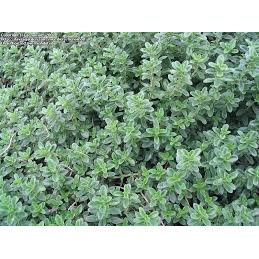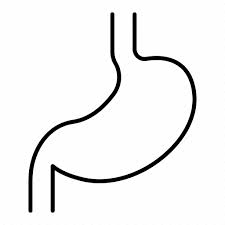
Reference: Tanacetum
Banner



Wild thyme, also known as serpolet commun or Feldthymian, is an exceptional plant that holds not only an extraordinary aroma and taste but also numerous health benefits. Welcome to our online store to explore and fall in love with the unparalleled quality of our wild thyme products! Our wild thyme is cultivated with passion and care for the natural environment to deliver the highest quality herbs. The powdered leaves and delicate flowers of wild thyme provide an excellent base for preparing unique herbal infusions, flavoring dishes, or adding a touch of freshness to salads. Moreover, by using our wild thyme products, you can enjoy the health advantages of this plant. It contains valuable substances such as flavonoids, vitamins C and K, and minerals that support the immune system and overall well-being. Not only delicious but also versatile! Our wild thyme is perfect as a natural antiseptic for skincare and as a soothing remedy for minor sore throats or colds. Experience the enchanting allure of wild thyme and make it a part of your daily aromatic pleasure and wellness routine!
 Security policy
Security policy
(edit with the Customer Reassurance module)
 Delivery policy
Delivery policy
(edit with the Customer Reassurance module)
 Return policy
Return policy
(edit with the Customer Reassurance module)
 Thyme and its common names:
Thyme and its common names:
 1. Can wild thyme be used for medicinal purposes ?
1. Can wild thyme be used for medicinal purposes ?
Wild thyme (Origanum majorana) is a plant from the Lamiaceae family, which has been used for centuries both in culinary and medicinal applications. Its remarkable health properties have led to its extensive use in natural medicine. Wild thyme is known for its delicate, sweet aroma and slightly bitter taste. It contains many valuable chemical compounds such as flavonoids, phenols, and essential oils, which are responsible for its medicinal properties. One of the main applications of wild thyme is its antibacterial and antiviral action. The compounds present in this plant can help combat various types of infections, both external and internal. Wild thyme can be used in the form of infusions, ointments, or essential oils, which can be applied topically on the skin or taken orally for reflexology. Additionally, wild thyme possesses analgesic and anti-inflammatory properties. It may help alleviate muscle and joint pain as well as reduce inflammation. It can also be used to alleviate symptoms of rheumatism and arthritis. In folk medicine, wild thyme has also been used as a calming and relaxing agent. Its soothing properties can help ease nervous tension, anxiety, and insomnia. Furthermore, wild thyme may support digestion and alleviate digestive discomforts such as bloating and indigestion.
 2. What are the health properties of wild thyme ?
2. What are the health properties of wild thyme ?
Wild thyme (Origanum majorana) is an herb with exceptional health properties, making it a perfect addition to your natural medicine cabinet. Its unique active ingredients have several beneficial effects on the body:
In conclusion, wild thyme is a plant with many beneficial health properties. Its antibacterial, anti-inflammatory, anticancer, calming, and pain-relieving effects make it an invaluable treasure of nature. Harnessing its power can contribute to improved health and overall well-being.
 3. What are the potential health benefits of using marjoram ?
3. What are the potential health benefits of using marjoram ?
The use of marjoram (Origanum majorana) can bring numerous potential health benefits, making it a valuable natural treasure for your well-being. Here are some of these benefits:
 4. What are the contraindications and possible side effects associated with using marjoram ?
4. What are the contraindications and possible side effects associated with using marjoram ?
While using marjoram (Origanum majorana), there are several potential contraindications and possible side effects to consider. Although it is generally considered a safe herb, certain factors should be taken into account:
 5. In what form is marjoram most commonly used in medicine, such as essential oil or herbal infusion ?
5. In what form is marjoram most commonly used in medicine, such as essential oil or herbal infusion ?
Marjoram (Origanum majorana) is primarily used in medicine in the form of essential oil and herbal infusion. Both forms have their unique applications and health benefits. Marjoram essential oil is one of the most common products derived from this herb. It contains concentrated properties and active substances of marjoram. The essential oil can be used in various ways. It can be inhaled in aromatherapy, helping to reduce stress, anxiety, and improve mood. It can also be applied topically in massages or compresses to alleviate muscle and joint pain. Additionally, marjoram essential oil has antibacterial and antiviral properties, making it suitable for surface sterilization or adding to natural cleaning solutions. Herbal infusion or herbal tea made from dried marjoram is also a popular way of using this herb in medicine. The infusion can be prepared by steeping dried marjoram in hot water and allowing it to infuse for a few minutes. Marjoram infusion has a wide range of applications. It can be consumed as a tea, aiding in immune system strengthening, soothing inflammation, supporting digestion, and calming the nervous system. Additionally, it can be used externally as compresses or rinses to treat skin inflammations, insect bites, or oral issues. Both forms - marjoram essential oil and marjoram infusion - have their individual benefits and can be used according to one's needs and preferences.
 6. What are the recommended doses for using marjoram for medicinal purposes ?
6. What are the recommended doses for using marjoram for medicinal purposes ?
When using marjoram (Origanum majorana) for medicinal purposes, the doses may vary depending on the form and individual needs. Here are general guidelines for the doses used with marjoram: Marjoram Essential Oil: Doses of marjoram essential oil should be used with caution as it is highly concentrated. It is usually recommended to dilute the essential oil before applying it to the skin or for inhalation. For example, 1-2 drops of the oil can be diluted in 1 teaspoon of carrier oil, such as jojoba oil or olive oil. It is also important to follow the manufacturer's recommendations regarding doses for aromatherapy use. Marjoram Infusion (Herbal Tea): The doses for marjoram infusion depend on the preparation method. Typically, it is recommended to use about 1-2 teaspoons of dried herbs per cup of boiling water. The infusion should be steeped for approximately 5-10 minutes, and then it can be consumed 2-3 times a day. It is important not to exceed the recommended amount of herbs and not to prolong the steeping time, as this may lead to excessive consumption. Again, it is important to note that doses may vary depending on individual needs and circumstances. Some individuals may be more sensitive to the compounds in marjoram and require smaller doses.
 7. How does marjoram affect the digestive system ?
7. How does marjoram affect the digestive system ?
Marjoram (Origanum majorana) has a positive impact on the digestive system, offering several health benefits for the intestines and overall digestion. Here are a few ways in which marjoram affects the digestive system:
 8. Does marjoram have antibacterial or antiviral properties ?
8. Does marjoram have antibacterial or antiviral properties ?
Yes, marjoram (Origanum majorana) possesses antibacterial and antiviral properties, making it a valuable herb in fighting infections. Here's why marjoram is known for these properties: Antibacterial Properties: Chemical compounds present in marjoram, such as thymol and carvacrol, exhibit strong antibacterial properties. Research shows that marjoram can inhibit the growth of many types of bacteria, including those that are antibiotic-resistant. It works against pathogens like Escherichia coli, Staphylococcus aureus, and Salmonella, which are common causes of bacterial infections. Antiviral Properties: Marjoram also shows antiviral activity. In vitro studies have demonstrated that marjoram extract can inhibit the replication of certain viruses, such as the influenza virus and herpes simplex virus type 1 (HSV-1). Compounds in marjoram may interfere with viral mechanisms, preventing their spread and replication. Boosting Immunity: Regular consumption of marjoram infusion or the use of marjoram essential oil may enhance the immune system. The antibacterial and antiviral compounds present in marjoram help the body in combating infections, protecting it from harmful microorganisms.
 9. What are the uses of marjoram in skincare or for treating skin conditions ?
9. What are the uses of marjoram in skincare or for treating skin conditions ?
Marjoram (Origanum majorana) has various uses in skincare and for treating certain skin conditions. Here are a few ways marjoram can be used for these purposes:
 10. Are there any interactions between marjoram and other medications or supplements ?
10. Are there any interactions between marjoram and other medications or supplements ?
Similar to many other herbs and supplements, marjoram (Origanum majorana) may have potential interactions with certain medications or other supplements. Before using marjoram or any other herbal preparation, it is always important to consult with a doctor or pharmacist, especially if you are currently under treatment or taking other supplements. Here are a few examples of possible interactions:
 Scientific research has been conducted by:
Scientific research has been conducted by:
 STORAGE
STORAGE
Drying: The most common way to store marjoram is by drying it. This can be done by spreading fresh sprigs on paper or a cloth surface in a dry and well-ventilated place, away from direct sunlight. Once completely dried, the leaves can be separated from the stems and stored in a dry, airtight container. Storage in a Jar: If you have fresh marjoram sprigs, you can store them in a jar. Ensure that the sprigs are well-dried and free from moisture. Place them in a dry jar and seal it tightly. Store the jar of marjoram in a cool and dark place to preserve its aroma and properties. Limiting Exposure to Air: During the storage of marjoram, it's essential to limit exposure to air, which can contribute to the loss of aroma and nutrients. Make sure the container in which you store marjoram is tightly sealed to maintain its freshness. Protecting from Moisture: Marjoram is sensitive to moisture, which can lead to mold and loss of quality. Therefore, store marjoram in a dry place and avoid exposure to moisture. If you are drying or storing it in a jar, ensure that the plant is fully dried before placing it in the container. Regular Inspection and Refreshing: Over time, it is advisable to regularly check the condition of the stored marjoram. Remove any wilted or spoiled leaves. If you notice any signs of mold or moisture, immediately remove the affected part and check if the rest is in good condition.
 SCIENTIFIC SOURCES
SCIENTIFIC SOURCES

Thank you for your interest in our website dedicated to herbs! We are glad that you appreciate our work and effort that we put into creating valuable content. If you would like to share our information on your website, we warmly encourage you to do so. However, please respect our copyright and do not copy the content without our permission.
If you wish to share our website, you can always provide a link that leads to our page. Not only will this help maintain the integrity of our work, but it will also allow your readers to discover more valuable information about herbs.
Thank you for understanding and supporting us! If you have any questions or need further information.
Reference: Tanacetum
Reference: black cumin / black seed
Reference: scutellaria
Reference: Cat's Claw
Reference: BRAHMI (Bacopa monnieri)
Reference: lemon balm
Reference: saffron
Reference: Hawthorn
Your review appreciation cannot be sent
Report comment
Report sent
Your report cannot be sent
Write your review
Review sent
Your review cannot be sent

Wild thyme, also known as serpolet commun or Feldthymian, is an exceptional plant that holds not only an extraordinary aroma and taste but also numerous health benefits. Welcome to our online store to explore and fall in love with the unparalleled quality of our wild thyme products! Our wild thyme is cultivated with passion and care for the natural environment to deliver the highest quality herbs. The powdered leaves and delicate flowers of wild thyme provide an excellent base for preparing unique herbal infusions, flavoring dishes, or adding a touch of freshness to salads. Moreover, by using our wild thyme products, you can enjoy the health advantages of this plant. It contains valuable substances such as flavonoids, vitamins C and K, and minerals that support the immune system and overall well-being. Not only delicious but also versatile! Our wild thyme is perfect as a natural antiseptic for skincare and as a soothing remedy for minor sore throats or colds. Experience the enchanting allure of wild thyme and make it a part of your daily aromatic pleasure and wellness routine!